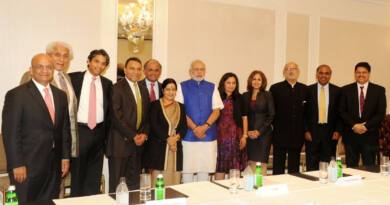The Indian Diaspora And Dual Citizenship: What You Need To Know
The Indian Diaspora and India
The Indian diaspora is a term used to refer to the global community of people of Indian descent living outside of India. This community, which is estimated to be around 32 million people, is spread across the world and has significant presence in countries such as the United States, the United Kingdom, Canada, and the United Arab Emirates.
The Indian diaspora has a long history of migration, dating back to the colonial period when indentured labour was brought to various parts of the world, particularly to countries in the Caribbean, Africa, and Southeast Asia. Today, the diaspora is a diverse and multi-faceted community, comprising of people of Indian origin from different regions, religions, and socio-economic backgrounds.
The Indian diaspora has played an important role in shaping the cultural, economic, and political landscape of the countries in which they live. They have been successful in businesses, politics, and academics. Indian-origin people have held high public offices in countries like USA, UK, Canada, Singapore, and many more. They have also been active in preserving and promoting Indian culture and traditions through organizations and community events.
One of the key issues facing the Indian diaspora is the question of identity and belonging. Many members of the diaspora struggle to reconcile their Indian heritage with their identities as citizens of their host countries. The concept of dual citizenship provides a way for members of the diaspora to maintain a connection to their Indian heritage while also fully participating in the societies of their host countries.
Another important issue for the Indian diaspora is the question of economic opportunities. Many members of the diaspora have been successful in business and have made significant contributions to the economies of their host countries. However, they have often faced barriers to fully participating in the economies of their home countries. The Indian government’s efforts to provide dual citizenship and greater economic opportunities for the diaspora are seen as a way to address these issues and to encourage greater economic engagement between the diaspora and India.
India’s dual citizenship policy has been appreciated as a step towards diaspora engagement, but there are also criticisms. The policy has been criticized for not providing dual citizens with full political rights, such as the right to vote in Indian elections or to hold public office. Additionally, dual citizens are not allowed to acquire agricultural or plantation properties in India. These limitations have been seen as a major hindrance in encouraging the diaspora to invest in India.
In recent years, the Indian government has been taking steps to engage with the diaspora and to provide them with greater opportunities to connect with their homeland. One of these efforts has been the introduction of the concept of dual citizenship, also known as “Overseas Citizenship of India” (OCI), which allows people of Indian origin to hold both Indian and foreign citizenship.
This move is seen as a way to strengthen the ties between the diaspora and India and to provide them with greater opportunities to invest, work, and study in India. The OCI card holder is entitled to a lifelong visa for visiting India and multiple entry, multi-purpose lifelong visa for visiting India. They are also eligible for benefits like parity with NRIs in economic, financial and educational fields except certain fields like acquisition of agricultural or plantation properties.
However, India’s dual citizenship policy is not as liberal as other countries like USA, Canada, and many more. It doesn’t allow for the dual citizenship holders to vote in the Indian elections, doesn’t have the right to hold public office and doesn’t have the right to acquire agricultural or plantation properties in India.
In recent years, the Indian government has been taking steps to address these limitations. The government has proposed amendments to the Citizenship Act that would allow dual citizens to vote in Indian elections and to hold public office. The amendment bill is still pending and is yet to be passed by the parliament. However, the question of property ownership remains a contentious issue, with no clear resolution in sight.
In conclusion, the Indian diaspora is a significant and influential community that has made important contributions to the countries in which they live. The Indian government has been taking steps to engage with the diaspora and to provide them with greater opportunities to connect with their homeland through the concept of dual citizenship. While the concept of dual citizenship has allowed for greater engagement and investment between the diaspora and India, it still has limitations in terms of political rights and property ownership. The Indian government is taking steps to address these limitations, but much more needs to be done to fully realize the potential of the diaspora as a vital link between India and the world.




